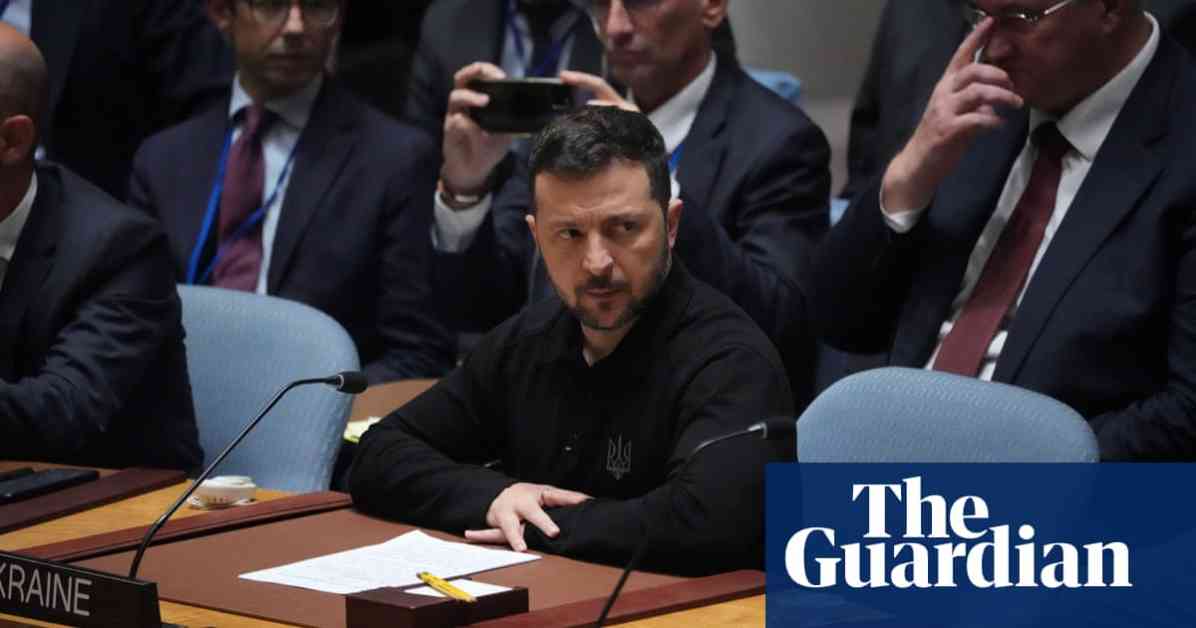Global South Urged to Support Ukraine in Pressuring Russia for Peace
In a powerful address to the UN Security Council, Ukrainian President Volodymyr Zelenskyy urged a coalition of nations, including those from the Global South, to join forces in pressuring Russia to seek peace. Zelenskyy condemned Russian President Vladimir Putin for violating the principles of the United Nations and stated that mere negotiations would not be sufficient to end the conflict.
Accusing Moscow of committing “international crimes” by targeting Ukrainian civilians and energy infrastructure, Zelenskyy claimed to have evidence that Putin was planning to attack three Ukrainian nuclear power plants to further destabilize the country’s energy grid. While expressing gratitude to Ukraine’s existing allies, he called on countries in regions such as Africa, Latin America, and India to increase their efforts in pushing Russia towards peace.
Many of the countries in the Global South have close economic and diplomatic ties with Russia, leading some to give credence to Putin’s claims that the conflict was provoked by the West. Zelenskyy emphasized the importance of all nations, regardless of their alliances, coming together to pressure Russia to end the war. He questioned the rationale behind any potential talks with Putin, highlighting the absurdity of attempting to negotiate with a leader who continues to perpetuate violence and aggression.
Zelenskyy is scheduled to visit the White House to meet with US President Joe Biden to discuss his “victory plan,” which outlines Ukraine’s path to ending the war with increased support from Western nations. The Ukrainian leader stressed the necessity for sustained pressure to bring about a peaceful resolution with Russia, citing the country’s blatant disregard for international laws and norms.
The Path to Peace: Strengthening Ukraine and International Support
In a televised interview, Zelenskyy underscored the crucial role of Western support in Ukraine’s efforts to achieve peace. While acknowledging the importance of continued assistance from allies, he also recognized the need for negotiations to bring an end to the conflict. Zelenskyy’s plea for the US and UK to lift restrictions on the use of long-range missiles against Russia reflects his determination to secure Ukraine’s sovereignty.
Despite concerns about potential escalation, Zelenskyy remains optimistic about the prospect of peace, emphasizing the importance of unity and resilience in the face of adversity. He reiterated the significance of Ukraine’s allies standing by the country in its quest for stability and security.
At the UN Security Council meeting, US Secretary of State Antony Blinken emphasized the urgency of halting Russia’s collaboration with Iran and North Korea, citing their provision of arms that have enabled Russia to sustain its military campaign in Ukraine. Blinken called for a united effort to achieve a “just peace” that upholds the fundamental principles of the UN charter.
Challenges and Opportunities for Diplomatic Resolution
Blinken’s remarks highlighted the complex geopolitical landscape surrounding the conflict in Ukraine, with Iran and North Korea playing a significant role in supporting Russia’s military efforts. He also raised concerns about China’s contribution to Russia’s war machine, underscoring the need for a coordinated diplomatic response to address the security threat posed by the ongoing conflict.
While acknowledging the need for negotiations, Blinken emphasized the importance of holding Russia accountable for its actions and preventing further escalation of hostilities. The Secretary of State’s call for a diplomatic coalition to address the crisis reflects the international community’s commitment to achieving a peaceful resolution in Ukraine.
As the world grapples with the challenges presented by the conflict in Ukraine, the Global South has a crucial role to play in supporting efforts to pressure Russia into seeking peace. By standing in solidarity with Ukraine and advocating for diplomatic solutions, countries in regions such as Africa, Latin America, and India can contribute to the collective endeavor to end the violence and restore stability in the region.












